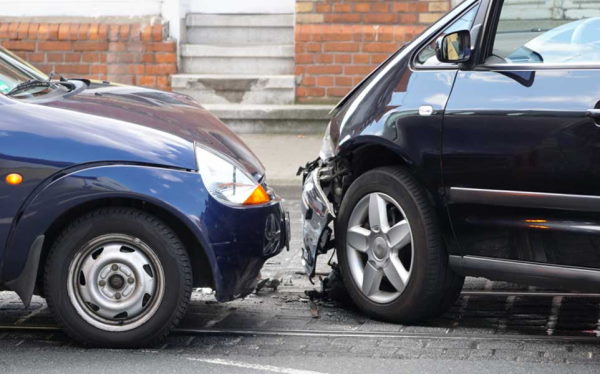- Car Accidents
Automobile insurance is on the rise again across the country. With gas prices dropping so low over the past year, more drivers are on the road, which in turn leads to more accidents, causing insurance companies to report record low earnings. As a result, these insurance companies are seeking to raise rates to compensate for their losses. Insurance companies first have to submit a proposal to alter rates with each state’s Department of Insurance to be approved. Once the approval happens, different rates go into effect depending on the state. These rates can range from 5 percent to 30 percent or more depending on the state and any disasters that have affected the surrounding area.
Georgia Increases
One of Georgia’s leading automobile insurance companies, Allstate, has filed to seek a 25 percent increase in automobile insurance taking effect in late May, throughout Georgia. While majority of drivers insured with Allstate will see this 25 percent increase, some policyholders will have policy increases as high as 58 percent compared to their rate for the previous year. With this increase affecting so many drivers throughout the state, Georgia’s Insurance Commissioner has directed a team to analyze whether the rate is legally excessive. The ‘legally excessive’ standard is the only way in which the increase can be challenged, and Allstate must prove why there was a need for the increase for it to be approved. Although Georgia implemented a ‘file and use’ system in encourage competition among insurance companies so that consumers can get the best rates and will not have a saturated market, rates are still being increased in large amounts and competition remains the same between large companies. Due to these circumstances, Georgia had the highest increase in personal automobile insurance rates in 2014.
How Automobile Insurance is Calculated
There are many ways in which car insurance is calculated and how you may be able to get a discount on your rate. Georgia car insurance companies consider factors such as: driving record, car insurance claim history, make and model of the car, driver’s age, gender, marital status as well as a driver’s credit history. After assessing these factors, insurance companies may offer discounts for a driver in the form of a good driver discount, good student discount or multiple car discount. Some states will also offer a discount for completing a defensive driver course in some cases.
Why Automobile Insurance Increases Matter with Fault
Georgia automobile insurance coverage is classified under a fault system. Thus, when a car accident occurs, the driver responsible for the accident is liable for the injuries to the person or property. This differs from states that attribute no fault liability, meaning that regardless of who was responsible for the accident, each party pays for their own damages. In Georgia, drivers are required to have liability insurance for their vehicle in order to operate a car. There are certain specifications that policyholders must meet, as set out by the state. The insurance policy must cover $25,000 for one incident relating to property damage and $25,000 per person or $50,000 for multiple persons suffering bodily injury from an accident.
The fault system for liability is subject to certain rules. In states that adopt a fault system, it is important when establishing a claim to determine who was at fault and to what to degree. Comparative negligence helps determine that degree of fault in one of two ways. The first, pure comparative negligence allows a driver to recover from the other driver even if they were responsible for the majority of the accident, while modified comparative negligence looks at how responsible the parties were and who will be more liable. Under modified comparative negligence in Georgia, the injured party must be less responsible for the accident than the other driver, i.e. less than 50 percent, in order to receive damages.
Negligence is established by proving the existence of four factors. First, the driver must establish that there was a duty of care owed to them by the other driver, such as, the duty to stop at a red light. Second, it must be proven that the other driver breached that duty of care, i.e. ran a red light. Third, it must be shown that accident was an actual and proximate cause of the negligent driving of the other driver. Fourth, damages must result from the negligent behavior. Once all four of these elements are established, courts can look to determine how much the actions of both of the drivers attributed to the accident, which will determine who must pay the specified portion liable.
Consequences for Driving without Insurance
There are serious consequences for those drivers who cancel or do not replace their insurance coverage. First the Georgia Department of Driver Services will contact the driver regarding the status of the car and warn of possible penalties the driver may face. In the case that your driver’s license is suspended due to lack of insurance, you must wait 60 days after license was suspended to apply for reinstatement, purchase the minimum coverage required and pay a reinstatement fee of $200 to the state. If you are caught without a license twice, you will have your license suspended for 90 days, will have to purchase insurance and have a Georgia Safety Responsibility Insurance Certificate filed, and pay a reinstatement fee of $300 to the state.
Experienced Auto Accident Attorneys Ready to Serve You
Automobile accidents can instantly change the lives of those involved. If you or someone you know was involved in an automobile accident due to negligent driving and need help in establishing liability or obtaining payment from an uninsured driver, do not hesitate to contact the Wade Law Offices today and let us fight to get you what you deserve. Your case review is always free. Our talented Georgia car accident team proudly represent clients in Atlanta and the surrounding areas.









